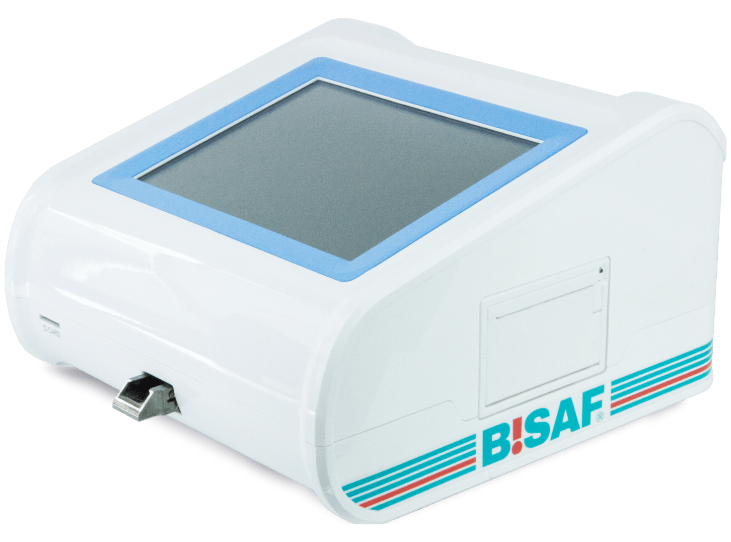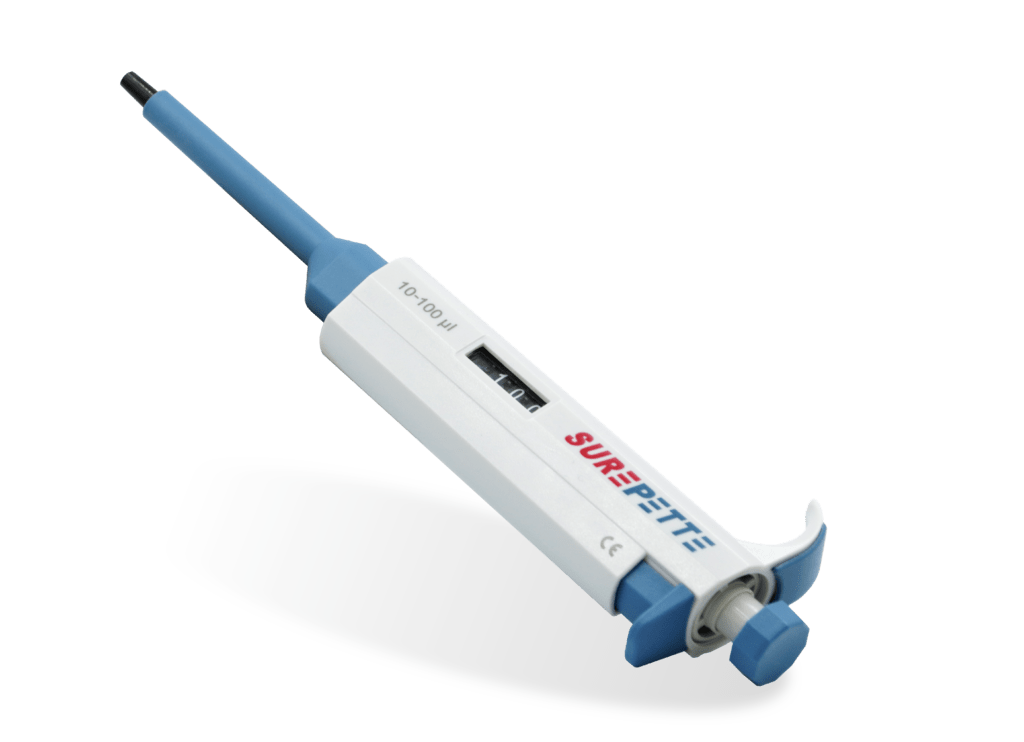Home » Drug test 10 substances
Drug test of 10 substances
Hygienic and easy to perform urine drug test that provides a quick result in as little as 5 minutes! It detects as many as 10 different substances simultaneously. Its high sensitivity and specificity allow for reliable and accurate results. It was developed for professional use, meeting the highest standards.
Product intended for use by professionals


Drug test of 10 substances
Hygienic and easy to perform urine drug test that provides a quick result in as little as 5 minutes! It detects as many as 10 different substances simultaneously. Its high sensitivity and specificity allow for reliable and accurate results. It was developed for professional use, meeting the highest standards.
Product intended for use by professionals
Properties
- painless collection of the test sample
- sample material: urine
- quick result after only 5 minutes
- high sensitivity and specificity
- detects 10 different substances
- designed for professional use
- easy and hygienic to perform
- package includes 1 test panel and instruction manual.
DISCOVERY
It uses a urine sample to identify
the presence of a substance.
TIME
Waiting time for the result
is 5 minutes!
AMOUNT OF SUBSTANCES
Test detects
10 drug substances
Detected substances:
Amphetamine is a psychoactive substance that acts as a stimulant on the central nervous system. It is a synthetic drug that can increase the levels of certain neurotransmitters in the brain, such as dopamine and norepinephrine, leading to physical and mental stimulation. Amphetamine is used both in medicine, where it is employed in the treatment of certain conditions, and as a recreational drug. However, its uncontrolled use has many negative health and social consequences.
Here are some key points about amphetamine:
Medical Uses: Amphetamine has been used in medicine in the past to treat various conditions such as ADHD (Attention Deficit Hyperactivity Disorder), obesity, and some sleep disorders. Currently, it is used much less frequently due to the risk of misuse and addiction.
Side Effects: Amphetamine can induce numerous side effects, including elevated blood pressure, tachycardia (rapid heartbeat), insomnia, loss of appetite, disorientation, feelings of anxiety, excessive excitement, as well as serious health complications like stroke, mental disorders, and heart damage.
Addiction: Amphetamine is an addictive substance, and its abuse can lead to a strong craving and obsessive thoughts about its use. Individuals addicted to amphetamine may struggle to quit using it.
Illegal Use: Amphetamine is often used as a recreational drug and is known by various street names such as “speed” or “meth.” In many countries, it is a controlled substance, and its production, sale, and possession without proper authorization are illegal.
Due to the health and social risks associated with amphetamine, its use outside of strict medical supervision is strongly discouraged. Individuals struggling with amphetamine addiction should seek help through therapy and addiction treatment programs to help them overcome this challenging situation.
A substance in the empathogen group, known as ecstasy, produces feelings of euphoria and increased emotional closeness.
Ketamine is a chemical substance with various applications, including as a medication and as a recreational drug. Here are a few primary uses of ketamine:
Anesthesia: Ketamine is used as a pain reliever and anesthetic in medicine, particularly in surgery and traumatology. It acts quickly and has sedative properties, allowing patients to lose consciousness and not feel pain during procedures.
Treatment of Treatment-Resistant Depression: In some cases, ketamine is being researched as an alternative treatment option for treatment-resistant depression. Some studies suggest that a single administration of ketamine can rapidly alleviate depression symptoms in some patients. However, this application is still under investigation, and ketamine is not widely used as an antidepressant medication.
Recreational Substance: Ketamine is a recreational drug that can induce psychedelic effects, disorientation, and intoxication. In many countries, it is an illegal substance, and its recreational use is both dangerous and unlawful.
Ketamine acts on NMDA receptors in the brain, leading to its diverse effects depending on the dose and context of use. In medical treatment, ketamine is administered under a doctor’s supervision, but its misuse or uncontrolled use can result in various undesirable side effects, including disorientation, hallucinations, nausea, vomiting, and other health problems.
It is essential to adhere to regulations and laws regarding the use of ketamine and consult with a physician if you have any questions or concerns about this substance. The misuse of ketamine is hazardous to health and can lead to addiction.
Cocaine is a potent and addictive psychoactive substance derived from the leaves of the coca plant, which is native to South America. Cocaine is commonly used as a recreational drug due to its stimulating effects on the central nervous system. Its effects can include feelings of euphoria, increased energy, boosted confidence, and reduced pain perception. However, cocaine also has numerous negative health and social consequences.
Here are some key points about cocaine:
Addiction: Cocaine is a highly addictive substance, and regular use can lead to a strong psychological and physical craving for it. Individuals addicted to cocaine often struggle to quit using it.
Health Effects: Cocaine can cause various health problems, including cardiovascular issues, high blood pressure, heart arrhythmias, damage to the nasal passages (if snorted), and negative impacts on the nervous system, which can lead to mental and neurological disorders.
Social Consequences: Cocaine use can lead to social problems such as legal issues, job loss, family problems, and financial difficulties.
Illegality: Cocaine is an illegal substance in most countries, meaning its production, sale, and possession without proper authorization are punishable by law.
Due to its dangerous health and social effects, as well as the risk of addiction, the use of cocaine is strongly discouraged. Individuals struggling with cocaine addiction should seek help through therapy and addiction treatment programs to help them overcome this challenging situation
Methamphetamine is a potent synthetic drug that affects the nervous system and is known for its addictive potential and negative health effects. It is a psychoactive substance that stimulates the brain by increasing the levels of neurotransmitters, such as dopamine, leading to feelings of euphoria, increased energy, and enhanced physical performance. However, methamphetamine also has many dangerous and harmful side effects.
The illegal use of methamphetamine can lead to various health problems, including:
Addiction: Methamphetamine is a highly addictive substance, meaning that individuals using it can quickly develop a strong craving and obsessive thoughts about its use.
Health Consequences: Prolonged use of methamphetamine can result in many serious health issues, including brain damage, dental problems (known as “meth mouth”), heart problems, kidney issues, and respiratory problems. It can also cause mental disorders, such as paranoia, hallucinations, and psychosis.
Social Consequences: Using methamphetamine can lead to social problems, such as job loss, family breakdown, and legal issues.
Methamphetamine is an illegal substance in many countries, and its production, sale, and possession without proper authorization are punishable by law. Due to its dangerous effects and health consequences, the use of methamphetamine is strongly discouraged. Individuals struggling with methamphetamine addiction should seek help through therapy and addiction treatment programs.
Opiates are a group of potent psychoactive substances that exert their effects on the body by acting on opioid receptors in the brain and nervous system.
Opiates are a group of potent psychoactive substances that exert their effects on the body by acting on opioid receptors in the brain and nervous system.
Synthetic stimulant, similar to amphetamine.
Principal psychoactive ingredient of marijuana, produces euphoric effects, changes perception and relaxation.
Tramadol is a pain medication used in medicine. It is an opioid, which means it acts on opioid receptors in the brain and nervous system, reducing the perception of pain. Tramadol is often prescribed to patients suffering from moderate to severe pain, such as after surgical procedures or in cases of chronic pain.
Tramadol also has certain side effects and a risk of addiction, so doctors typically prescribe it cautiously and in controlled doses. It’s important for patients to use tramadol as directed by their doctor and not exceed the recommended dose, as an excessive amount can lead to unwanted side effects and the risk of addiction.
Side effects of tramadol may include dizziness, nausea, vomiting, constipation, drowsiness, headaches, and other symptoms. If you have questions or concerns about tramadol or its use, it’s always advisable to consult with a doctor. Additionally, tramadol should not be used without a prescription or for recreational purposes, as it can be hazardous to health
Application of the test:
businesses and workplaces.
Medical centers and rehab clinics.
schools and educational institutions.
justice systems and police checks.
Parents wishing to ensure the safety of their children.
Our test is ideal for professionals in various fields who need an effective tool for detecting psychoactive substances.
Frequently Asked Questions:
How often should I perform this test?
The frequency of the test depends on your individual needs and circumstances. It can be used for regular monitoring or when you have suspicions about the presence of drug substances.
Can the test be done at home?
Yes, our test can be easily done at home. This is a convenient solution that allows you to monitor your health in a discreet and private manner.
Can this test detect substances after a single use?
Our test is able to detect the presence of drug substances, regardless of whether they have been they were consumed on a one-time basis or on a regular basis. However, the detection time may vary depending on the substance.
Can the test be stored for a long period of time?
Our drug test has a specific expiration period, which is usually indicated on the package. We recommend following the expiration date to ensure the accuracy of the results.
Frequently Asked Questions:
How often should I perform this test?
The frequency of the test depends on your individual needs and circumstances. It can be used for regular monitoring or when you have suspicions about the presence of drug substances.
Can the test be done at home?
Yes, our test can be easily done at home. This is a convenient solution that allows you to monitor your health in a discreet and private manner.
Can this test detect substances after a single use?
Our test is able to detect the presence of drug substances, regardless of whether they have been they were consumed on a one-time basis or on a regular basis. However, the detection time may vary depending on the substance.
Can the test be stored for a long period of time?
Our drug test has a specific expiration period, which is usually indicated on the package. We recommend following the expiration date to ensure the accuracy of the results.







